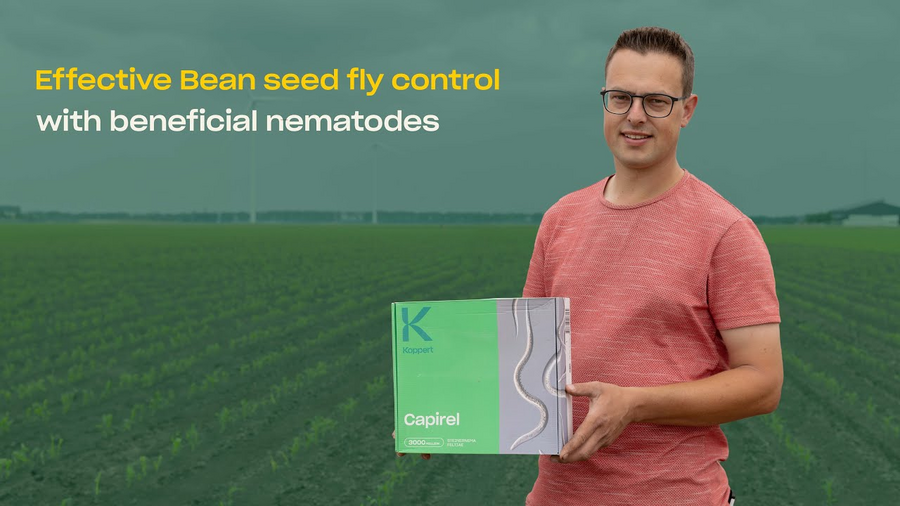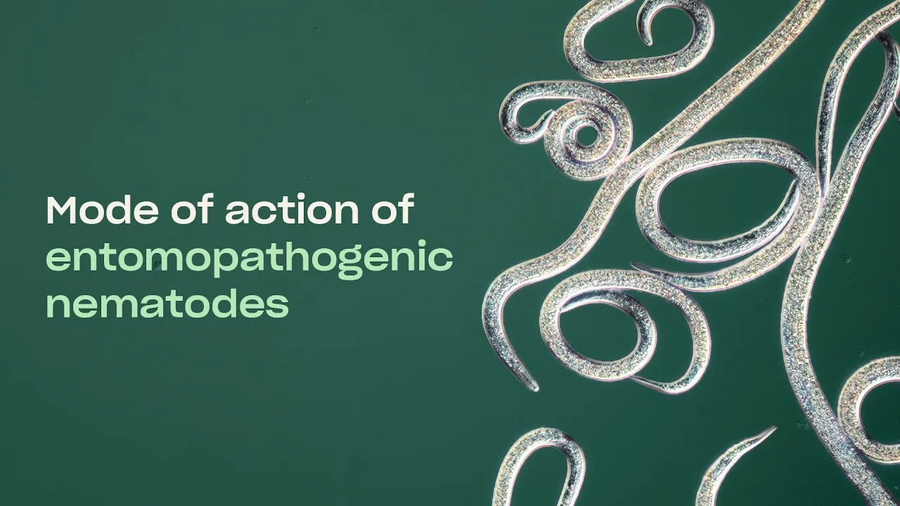
The bean seed fly (Delia platura), a common pest affecting a wide range of crops, can cause significant damage. However, beneficial nematodes offer an effective and environmentally friendly solution for biological pest control of bean seed flies, leaving natural enemies unharmed. Wilco Remijn, co-owner of an organic arable farm, recognizes the potential and efficacy of these beneficial nematodes in protecting his sweet corn crop.
Bean seed fly control and organic farming practices
Wilco always prioritizes maintaining crop health and organic certification. However, Delia platura presents a significant challenge during the vulnerable seed emerging phase. In spring, adult bean seed flies lay eggs near host plants. Larvae hatch and tunnel into the soil, feeding on seeds and roots of young plants, causing patchy emergence and crop loss.
The rapid damage requires proactive and effective intervention, often challenging the balance between organic ideals and practical pest management. Growers like Wilco strive to find innovative and sustainable solutions to protect their crops while adhering to organic principles.


Capirel: Biological control of Bean seed fly
Wilco Remijn, recognizing the need for effective pest control, turned to Koppert's beneficial nematodes, a solution approved for organic farming. Witnessing the positive impact of biological control, Remijn realized the crucial role Capirel (Steinernema feltiae) plays in managing bean seed fly infestations and minimizing crop damage. He is confident that without Capirel, resowing would have been necessary.
Beneficial nematodes offer a strategic advantage in the control of bean seed fly. They search for and penetrate Delia platura larvae and release symbiotic bacteria into its body cavity. These bacteria transform the host's tissue into a nutrient source, allowing the nematodes to feed, grow, and reproduce within the host. This process ultimately kills the pest within a few hours to days after infection.
Organic farming success with Capirel nematodes
Wilco is highly satisfied with the results achieved using Capirel nematodes and recommends this product to all growers facing challenges with the bean seed fly. He emphasizes its cost-effectiveness, highlighting how it prevents the need for expensive resowing, saving growers both time and money, and sparing them the frustration of replanting. Furthermore, he notes that biological control aligns perfectly with their goals of promoting sustainable agriculture, protecting the environment, and producing high-quality, safe food.












